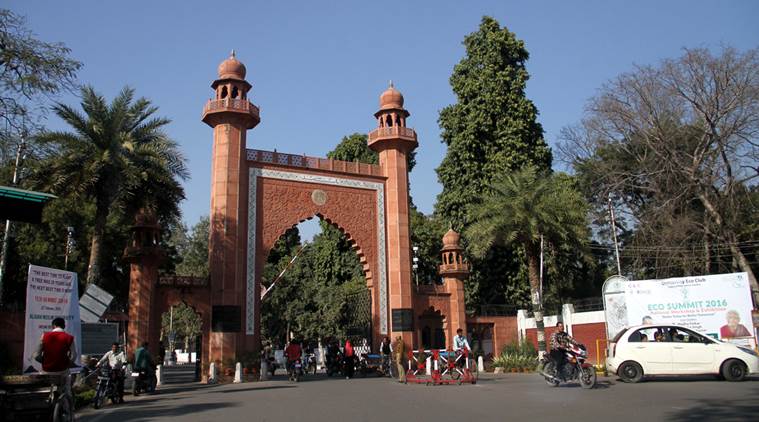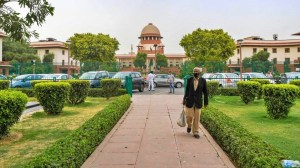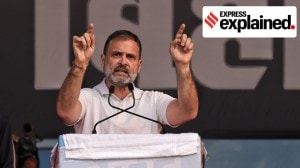- India
- International
His Master’s Choice
Phenomenon of the non-academic VC is part of a wider crisis of the university.
 Aligarh Muslim University (AMU). Express Photo by Gajendra Yadav.
Aligarh Muslim University (AMU). Express Photo by Gajendra Yadav.
You are a Central university. UGC regulations apply to you as they are mandatory. If every other Central university follows the regulation, why can’t you? Why to appoint a former army officer?” This rather intriguing question was put the other day to the authorities of Aligarh Muslim University (AMU) by a Supreme Court bench, while hearing a case against its sitting vice-chancellor (VC). The norm set for the purpose by the University Grants Commission for appointment of VCs, which the bench referred to, is 10 years experience as a university professor or in an equivalent position at a research or academic institution.
WATCH VIDEO: President Pranab Mukherjee Gives Nod To Hold Inquiry Against AMU VC Zameeruddin Shah
The first VC of AMU (1920) was the then ruler of Mahmudabad, a highly respected politician of the time credited with the initiative to establish Lucknow University. Prominent among his successors until the advent of Independence were Sir Syed’s learned grandson Ross Masud, celebrated jurist Shah Mohammad Sulaiman, and reputed mathematician Ziauddin Ahmad.
AMU has had 15 VCs since independence (excluding the stopgaps). Nawab Ismail Khan, who had been its VC for a short term during 1934-35, was reappointed in 1947, and served until October next year, when Zakir Hussain (later president of India) took over the reins of the institution. His eight year-term rescued the university from the pangs of the Partition. He was succeeded by Bashir Hussain Zaidi, a colonel. Among the 12 VCs appointed since Zaidi vacated office in 1962, only three had academic credentials. Rest of them have been IFS, IAS, IPS or army officers.
What is now known as the Jamia Millia Islamia had remained a private institution until after the advent of Independence, headed by a “Sheikh-ul-Jamia” (post akin to VC). During the first six years of Jamia’s history, the position was held by eminent freedom fighters, Mohammad Ali Jauhar and Abdul Majeed Khwaja. The latter was succeeded by Zakir Hussain, who occupied it for 22 years till he was sent to AMU as its VC. Jamia has been more fortunate than AMU in respect of the academic stature of its VCs. Among its 11 VCs since 1963, only four have been from outside the academia — three government servants and a former army officer.

Non-academics as VCs have not been unknown to the other universities of India but the record of AMU in this regard has been exceptional. The question is whether AMU or Jamia, or any other university for that matter, is absolutely free to choose a VC? When vacancies arise, “search committees”, virtually headed by the government’s nominees, are constituted to recommend names — only in some institutions, including AMU, the system is different. Whatever may be the modality, a person of the government’s choice always finds a place among the recommended names. The final choice is made by the visitor — the president of India for Central and the governor for state universities. In reality, this means the ruling party’s choice.
In both AMU and Jamia, and indeed everywhere else, each time the process begins, campus politics has a field day. Vested interests indulge in aggressive campaigning for their choices and bitterly oppose others, no holds barred. Vituperation, mud-slinging and character assassination all are fine in this game. There may be no recorded evidence of the phenomena I have mentioned — campus politics and imposition of official choice — but I have witnessed their existence both in AMU and Jamia, where some academic groups had suggested my name for the position. Be that as it may, universities cannot be held wholly responsible for choosing non-academics as their presiding deities. Being awfully unacademic, the prevailing system needs to be overhauled.
EXPRESS OPINION
Apr 25: Latest News
- 01
- 02
- 03
- 04
- 05










































